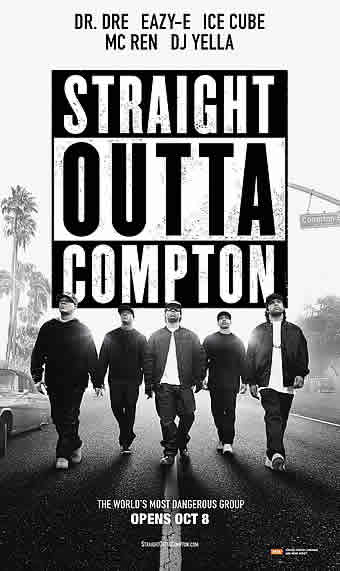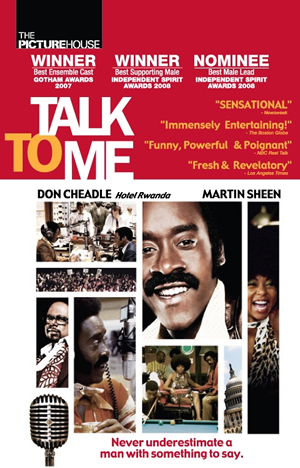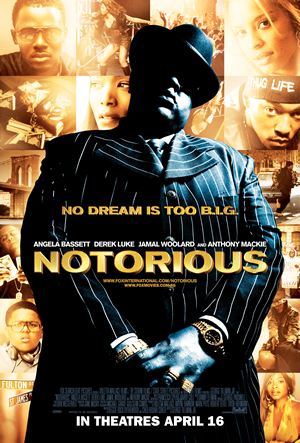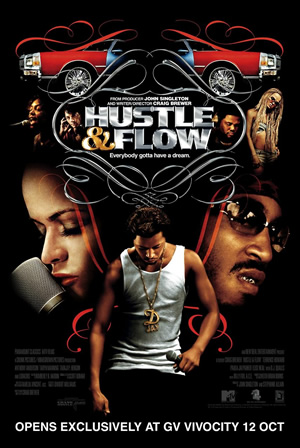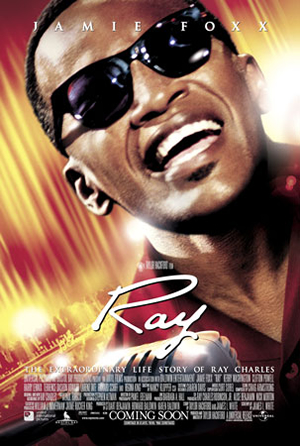STRAIGHT OUTTA COMPTON (2015)
Genre: Drama/Biography
Director: F. Gary Gray
Cast: Corey Hawkins, O'Shea Jackson Jr., Jason Mitchell, Neil Brown Jr., Aldis Hodge, Keith Stanfield, Marlon Yates Jr., R. Marcos Taylor, Keith Stanfield, Keith Powers, Paul Giamatti
Runtime: 2 hrs 27 mins
Rating: M18 (Strong Coarse Language & Some Nudity)
Released By: UIP
Official Website: http://www.straightouttacompton-film.com/index.php
Opening Day: 8 October 2015
Synopsis: In the mid-1980s, the streets of Compton, California, were some of the most dangerous in the country. When five young men translated their experiences growing up into brutally honest music that rebelled against abusive authority, they gave an explosive voice to a silenced generation. Following the meteoric rise and fall of N.W.A., Straight Outta Compton tells the astonishing story of how these young men revolutionized music and pop culture forever the moment they told the world the truth about life in the hood and ignited a cultural war.
Movie Review:
It was less than three decades ago when Rodney King made headlines in America after footage of him being beaten repeatedly by four officers of the Los Angeles Police Department exposed the deep racial fissures that their society continues to grapple with even today. Amidst rampant abuse of black Americans at the hands of law enforcement officials, the rise of the South Central LA hip-hop revolutionaries N.W.A (which stands for ‘Niggaz Wit Attitudes’) was nothing short of meteoric, and was greeted simultaneously with a mixture of outrage and consternation that brought out (mostly, if not all, White) demonstrators who bought piles of their debut album “Straight Outta Compton” LPs and CDs in order to crush them with bulldozers.
Even if you are not a fan of ‘gangsta rap’, there is no denying that F. Gary Gray’s biopic about the rise, break-up and legacy of the N.W.A. is gripping, powerful and poignant. Indeed, worries that two of the film's producers being its original members Ice Cube and Dr. Dre (Andre Young) would result in the more unflattering bits of their history being airbrushed are largely unfounded. Rather than make any of its subjects paragons of virtue, Gray paints a gritty portrait of the “streets” from which their music was born as well as their fractious in-fighting over compensation and contractual issues that eventually led to their dissolution at the very height of their popularity. It’s a lot of ground to cover all right, but the director who incidentally made his debut on the classic stoner comedy ‘Friday’ written by and starring the real Ice Cube does it with panache and without losing any propulsive momentum from start to finish.
Anchoring the sprawling two-and-a-half hour film are the three main players in N.W.A.’s formation – Andre Young (Corey Hawkins) aka Dr Dre, an aspiring DJ at a local club who falls out with his mother after refusing to settle for a normal paying job; O’Shea Jackson aka Ice Cube (O’Shea Jackson Jr), a talented rapper cum lyricist who writes rhymes on the school bus; and last but not least Eric Wright (Jason Mitchell) aka Eazy-E, a neighbourhood drug dealer whom Dre convinces to funnel some of his illicit funds into starting an appropriately named record label named ‘Ruthless’. In order for a more streamlined narrative, screenwriters Jonathan Herman and Andrea Berloff have largely cast the other two members – MC Ren (Aldis Hodge) and DJ Yella (Neil Brown Jr.) – to the sidelines, while writing out Arabian Prince altogether.
What the film lacks in breadth however, it makes up for in depth. Loosely structured as two halves, the first – and probably more cohesive one – charts the ensemble coming together (including a brief nod to some rappers known as H.B.O. or Homeboys Only) for their breakout hit ‘Boyz N tha Hood’, explains the origins of probably their most controversial song ‘F**k tha Police’ in their debut titular album, and follows them on their first national tour immediately after. There is no divorcing the personal lives of these musicians from the larger societal backdrop, and Gray tackles head-on the anger, injustice and discrimination that their music represented as well as the concomitant push-back from the ‘morally righteous’ segments of the community who argued that their music advocated violence and aggression towards the authorities.
A lesser director might have either played it too safe or played up the issues, but Gray displays a deft touch by never letting the portrayal be exploitative or lose its viscerality. He demonstrates that same adroitness in handling Jerry Heller’s characterisation, a key supporting role played by a scene-stealing Paul Giamatti in a vanilla toupee. As tempting as it may be to paint Jerry as the villain and the cause of the group’s downfall, Gray resists such easy categorisation by underscoring how the veteran manager was in fact the first to get their music, stand up for them against abusive cops, and ultimately give them a leg up in the music business. It doesn’t discount the fact that Jerry was at the same time an opportunistic weasel who had siphoned their profits for years, but Gray makes him a more complex character than such musical biopics are oft to do.
In place of the exuberance of the first half, the second finds sobriety in chronicling how friction between the three players sends the group into a tailspin. First, Cube leaves to pursue a successful solo career, provoking an attack from the remaining members in an EP and inciting a swift and forceful retort from Cube in a diss track. Then Dre leaves to form a new record company with Suge Knight, a partnership that though fruitful in unearthing a new generation of hip-hop talent including Tupac and Snoop Dogg was also tumultuous due to Knight’s gangster tendencies. And last but not least, Eazy finally comes to realise that Cube and Dre were right to suspect Jerry all along, but not before succumbing to HIV. To Gray’s credit, his movie doesn’t fall apart with the disbanding of the N.W.A.; instead, he exchanges panorama for intimacy, and the ensuing character study of three very different personalities is no less riveting.
That credit also belongs to Gray’s performers – Jackson Jr artfully evokes his father’s tough-guy charisma; Hawkins is quietly mesmerising as the virtuosic Dre; and Mitchell is fascinating as the film’s most complicated figure whose unerring loyalty to Jerry causes him to lose everything when his fortunes collapse. There is raw infectious energy in each one of their performances that is not only responsible for the exhilaration of the earlier scenes and the poignancy of the latter ones but also the lively re-enactment of the live performance and recording scenes of tunes from the N.W.A. catalog; in particular, Jackson Jr projects an uncanny resemblance to his real-life father figure channelling the latter in his onstage performance of ‘Gangsta Gangsta’.
Though the N.W.A. may not be as pivotal to the cultural zeitgeist here as in the United States, this biographical drama isn’t bound by culture in its depiction of the machinations that earned the ensemble its rightful and undisputed place in the history books and which eventually drove it apart. Love or hate the N.W.A., Gray’s ‘Straight Outta Compton’ speaks not in the hedonism, nihilism, and misogyny that some of the group’s music and lyrics were arguably guilty of but in the universal language of justice, equality and basic rights that these boys from the gang- and drug-damaged L.A. neighbourhood were fighting for. Both as an attentive study of its subjects as well as a timeless reminder of the racial divisions that still persist in today’s society, this is one hard-hitting, compelling picture that possesses its own distinctive rhythm and verve.
Movie Rating:




(Gripping, powerful and poignant - F. Gary Gray's biography of the hip-hop revolutionaries N.W.A. is 'dope')
Review by Gabriel Chong
You might also like:
